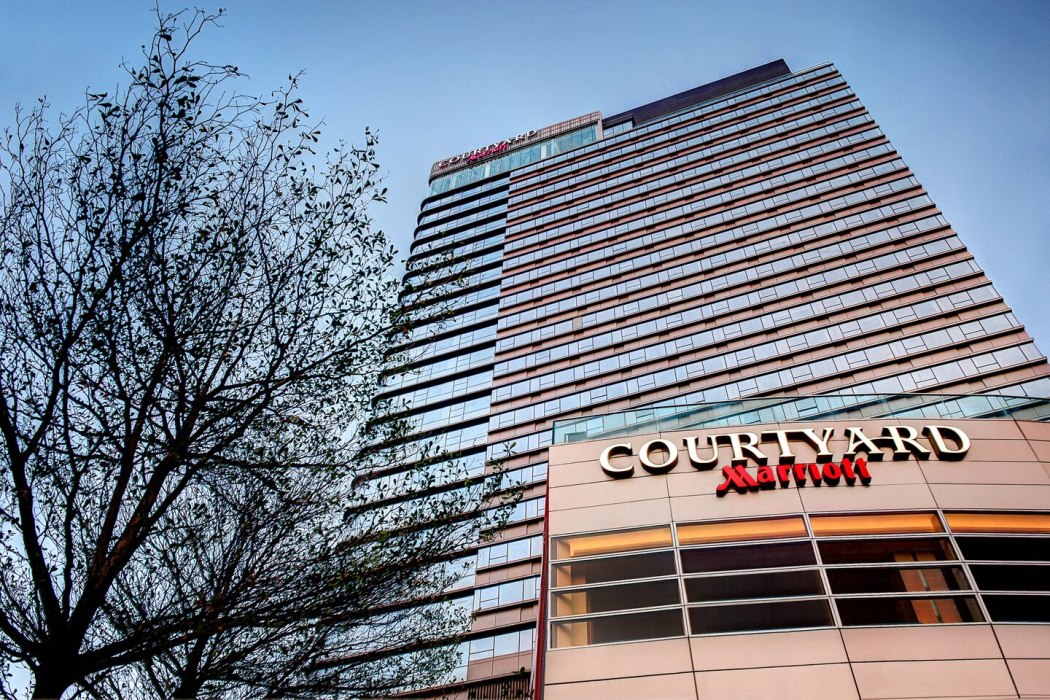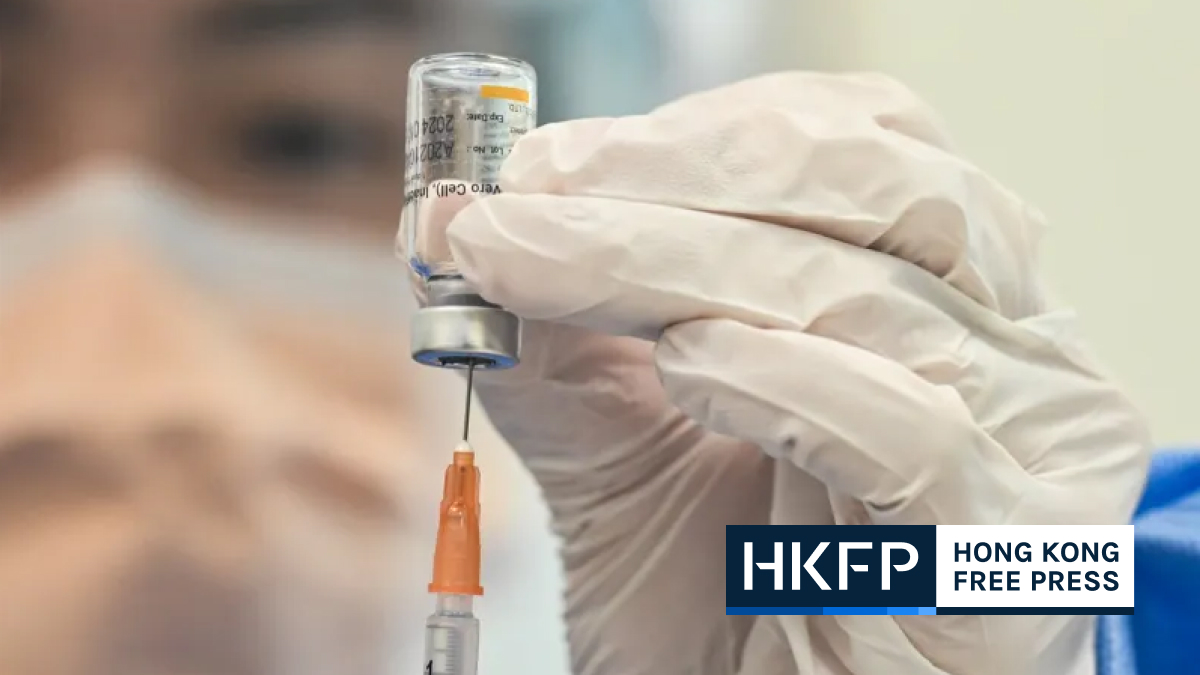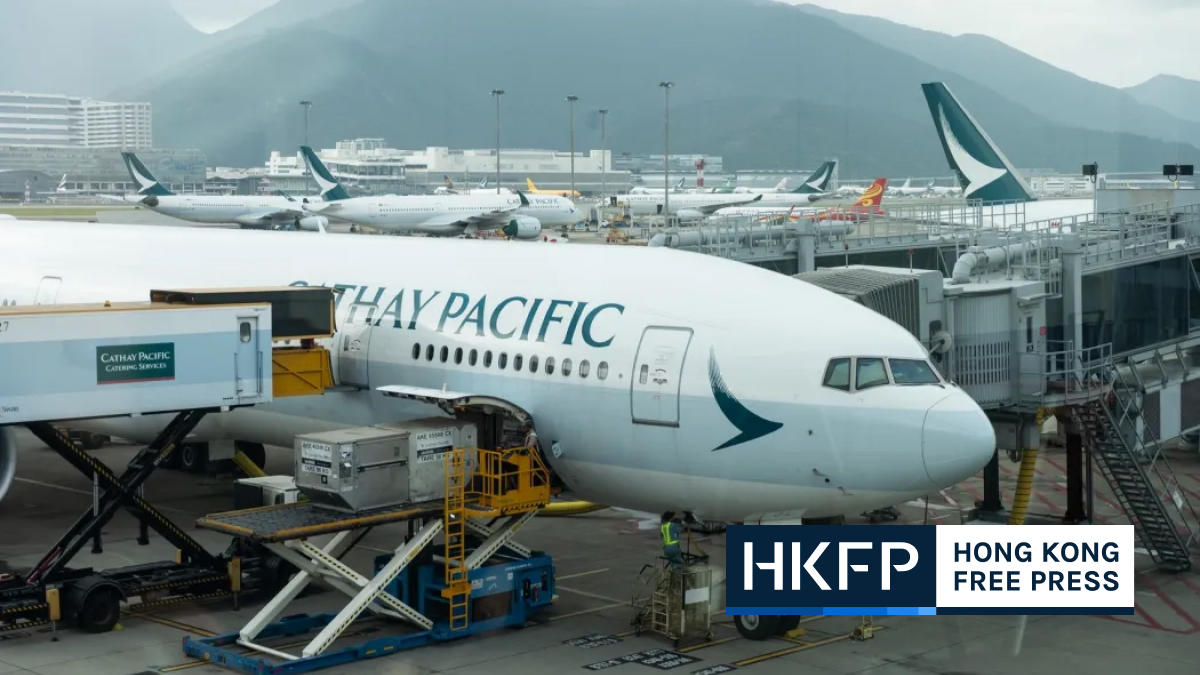Passengers from mainland China and other regions will be separated when they land at Hong Kong International Airport from next Monday, the Airport Authority has announced, as part of Covid-19 control measures.
There will be two designated zones set up on the Arrivals Level and Departures Level in the restricted area of Terminal 1. Airport staff members will also have to work in dedicated teams as the city seeks to reopen the mainland border for travel.

The latest arrangements were made “in order to enhance the public health and safety precautionary measures in the terminal at Hong Kong International Airport,” a spokesperson for the Airport Authority told HKFP.
Steven Chu, director-general of the Airport Air Freight Employees’ Association, said on an RTHK radio show on Friday that some staff members were worried about losing late night subsidies if they worked in the sector for passengers from mainland China flights, as there were no late flights going to and from the mainland.
Staff members will also have use specific facilities including restaurants and changing rooms designated to the two areas respectively. Chu said that the level of convenience “would not be the same as before.”
Foreign domestic workers
Meanwhile, Courtyard by Marriott Hong Kong in Sha Tin will become a designated quarantine hotel for incoming foreign domestic workers from December 8, the government announced on Friday. Bookings will be open from next Monday.
A 21-day quarantine in Courtyard by Marriot Hong Kong Sha Tin will cost HK$13,650, and there will be 500 rooms available for booking.

The Sha Tin hotel will become one of the three facilities available for domestic workers, along with Penny’s Bay Quarantine Centre and Rambler Garden Hotel in Tsing Yi. Silka Tsuen Wan, which was the first hotel designated for foreign domestic workers, will “serve for other quarantine purposes” from December onwards.
“The government understands the need of local families for foreign domestic helpers,” said a spokesperson from the Labour Department in a press statement released on Friday. “However, the global pandemic is severe and the Government must vigilantly uphold the policy of guarding against importation of cases. Foreign domestic helpers should be allowed to come to Hong Kong in a risk-controlled as well as gradual and orderly manner.”
Hong Kong reported one imported Covid-19 infection on Friday, totalling to 12,379 cases and 213 deaths since the pandemic began over a year ago.
Death inquest verdict
Also on Friday, a five-person jury handed down an “open verdict” in an inquest into the death of a 63-year-old man who died two days after receiving his first Sinovac Covid-19 jab.
According to Stand News, Coroner Monica Chow told the jury that they can give an “open verdict” ruling if they do not accept the medical evidence provided in court, and think that there were other factors causing the man’s death.

It was the first such inquest for a post-vaccine death.
The Expert Committee on Clinical Events Assessment Following COVID-19 Immunisation earlier said that the man’s death was not linked to the Covid-19 vaccine.
Booster jab choices
The government official in charge of Hong Kong’s vaccination programme received a third jab of Sinovac despite medical expert advice saying that Pfizer-BioNTech Covid-19 vaccine provided better protection.
Secretary for the Civil Service Patrick Nip, along with Chief Executive Carrie Lam and Secretary for Food and Health Sophia Chan, received their third dose of vaccine on Thursday, the first day that Hong Kong began providing booster jabs to two vulnerable groups.
The first group are immunocompromised individuals — such as cancer, organ transplant, or late-stage AIDS patients, who received their second Covid-19 jabs at least four weeks earlier.

The second group are individuals exposed to higher infection risks and who received two doses of Sinovac vaccine at least six months prior, including people over the age of 60, medics, cross-border truckers or workers at ports, and people with long-term illnesses.
A government expert committee said earlier last month that “Comirnaty [Pfizer-BioNTech] vaccine offers greater protection…“
According to HK01, Nip admitted that there were differences between the efficacy of the two vaccines, but “both vaccines are effective and safe, and are of quality,” and that citizens can choose “according to their own situation.”
As of Friday, 4,658,846 people have received at least one dose of Covid-19 vaccine in Hong Kong, of which 4,463,061 people have been fully vaccinated, and 16,825 people have received a booster third dose of vaccine.
Support HKFP | Policies & Ethics | Error/typo? | Contact Us | Newsletter | Transparency & Annual Report | Apps
Help safeguard press freedom & keep HKFP free for all readers by supporting our team















